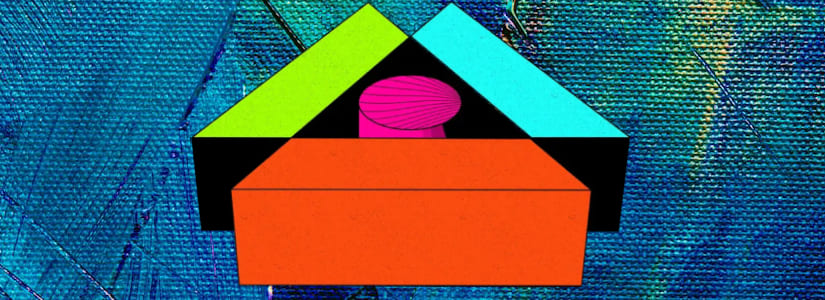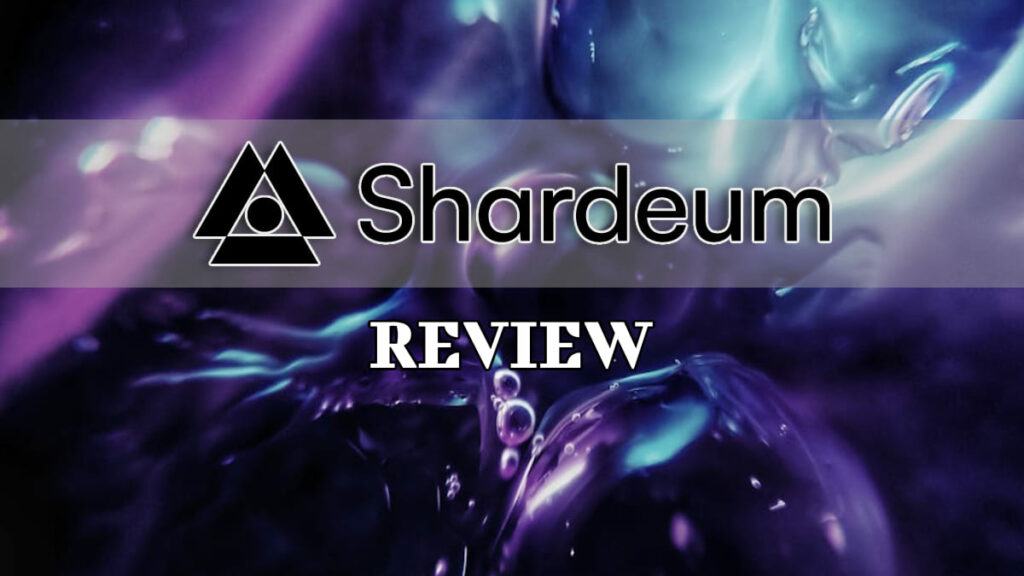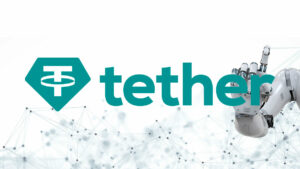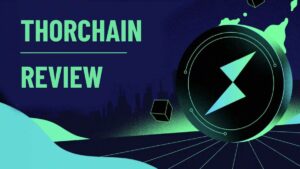Did you know that the “Blockchain Trilemma” is a problem that has concerned the entire crypto community since its inception? That is why many projects have tried to create solutions of different kinds and projects have emerged that aim to solve this problem. But among all of them, the one that stands out the most is Shardeum, and in this article we will see everything you need to know, from its main features to the potential of its native token.
What Is Shardeum (SHM)?
Shardeum is an innovative Layer 1 blockchain network compatible with the Ethereum Virtual Machine (EVM). This technology was created to solve the “blockchain trilemma,” a term popularized by Vitalik Buterin, which describes the difficulty of simultaneously achieving scalability, security and decentralization in a blockchain network. To address this challenge, Shardeum uses a technology called sharding.

Sharding allows the network to be divided into smaller segments, known as shards, making it easier to handle a higher number of transactions per second (TPS) without compromising security or decentralization. Thanks to this technology, Shardeum can process more than 100,000 TPS, surpassing the capabilities of less scalable networks such as Bitcoin or Ethereum itself.
The Shardeum network has its own native token called $SHM. This token is essential to the operation of the network, as it is used to reward node validators, pay fees, perform staking, and facilitate the decentralized economy on the platform. Later, we will discuss whether SHM is a good investment or not.
One outstanding feature of Shardeum is its ability to scale linearly. This means that as more validators are added to the network, TPS capacity increases, keeping gas rates consistently low. This unique architecture also allows developers to enjoy high throughput without sacrificing decentralization.
In addition, Shardeum has attracted significant investments during its dearole stages, securing over $23.6 million from prominent funds such as The Spartan Group, Amber Group and Jane Street Capital. The $SHM token has a fixed supply of 508 million units, providing stability and predictability to its internal economy.
Shardeum not only focuses on decentralized financial (DeFi) applications, but also has the potential to support open source artificial intelligence and gaming.
How Does Shardeum Work?

Shardeum has been designed with the primary goal of improving scalability, security and decentralization. It uses dynamic sharding, which guarantees higher efficiency than other similar blockchains. But let’s take a closer look at each of the features offered and how they work:
Dynamic Sharding
Unlike other types of sharding, Shardeum’s dynamic sharding is flexible and easily adapts to changes in the blockchain ecosystem. Instead of assigning all nodes in a shard the same address range, these nodes cover different address ranges with significant overlap. This allows transactions affecting multiple shards to be processed simultaneously rather than sequentially, reducing processing time and increasing transaction throughput. It also makes it easier to upgrade the network without bringing the ecosystem to a halt.
Atomic Processing and Inter-Shard Composability
Shardeum implements atomic processing that ensures that all parts of a transaction execute correctly or none at all. This eliminates security risks and guarantees the reliability of transactions. The ability to communicate between shards allows transactions to access and use data from different shards, which is crucial for executing smart contracts and complex transactions in a fragmented environment.
Proof Of Quorum Consensus
Shardeum combines Proof of Stake (PoS) and Proof of Quorum (PoQ) consensus mechanisms. The PoS decides how new blocks are validated and who receives the rewards for validating them. Meanwhile, the PoQ is in charge of validating transactions within consensus groups, consisting of several nodes in a shard. These nodes validate transactions individually and then share the results with the other nodes in the group. This combination allows the network to remain decentralized and secure.
Automatic Scaling
Shardeum’s ability to automatically scale allows the number of validator nodes to be adjusted according to network demand. This process measures the network load in short cycles and adjusts the number of nodes accordingly, autonomously and without intermediaries. For example, if an application experiences an increase in activity, the network adds more nodes to increase throughput, and when activity decreases, it reduces the number of active nodes to maintain operational efficiency.
Linear Scalability
Shardeum allows you to add more nodes to your network to increase transaction processing capacity proportionally during peak demand. This linear scalability ensures that the network can handle more than 100,000 TPS if demand and the number of nodes allow. This keeps transaction fees low and constant, regardless of network demand.
Permanently Low Fees
In Shardeum, consensus and processing are done at the transaction level, not at the block level. Thanks to dynamic sharding, the network evenly distributes workload, storage and bandwidth among all nodes. This results in a low operating cost for the validator nodes, as they only store data for the transactions they are involved in. This efficiency makes it possible to keep gas rates low for developers and users on an ongoing basis.
What Makes Shardeum Unique?
Let’s review then what makes Shardeum so attractive to users and developers alike:
Solution to scalability and low fees: As we have seen in the previous section, this platform effectively addresses the scalability problem within the blockchain trilemma by maintaining lower gas fees.
Low latency: Latency is considerably lower than other blockchains. For example, while Bitcoin has a minimum latency of 10 minutes, Shardeum aims to approve transactions in seconds.
Fairness in transaction priority: Transactions are processed in the order they are received, preventing users with higher gas rates from having priority over others, something common in blockchains such as Bitcoin and Ethereum.
Higher throughput: Improves performance by processing more transactions per second. Instead of relying on the validation of each node as in Bitcoin, Shardeum increases the number of nodes to improve processing throughput
Is The SHM Token A Good Investment?

We know that trying to predict the future price of assets as volatile as cryptocurrencies is nearly impossible, and doing so with the price of SHM is no exception. Therefore, to determine whether a token is a good investment, we must primarily look at its development potential and what it could bring to the crypto ecosystem in the future.
With these last two premises in mind, we find in Shardeum a really solid project. Its features and functionalities, as we have seen throughout this article, demonstrate that it is a trustworthy project, far removed from those that could potentially become ‘rug pulls’.
As for its usefulness for the ecosystem, its high scalability and low fees, can make Shardeum a really very attractive platform for developers and traders, so there are great chances that the SHM token will have a sustained demand over time. So it is very likely that its price trend will be bullish.
Conclusion
With scalability and high fees being a serious problem for many blockchains, Vitalik Buterin popularized the term ‘Blockchain Trilemma’ referring to this issue. Shardeum has burst onto the market with a very interesting proposal to address this challenge and promises to establish itself as one of the most remarkable projects in the crypto ecosystem.










